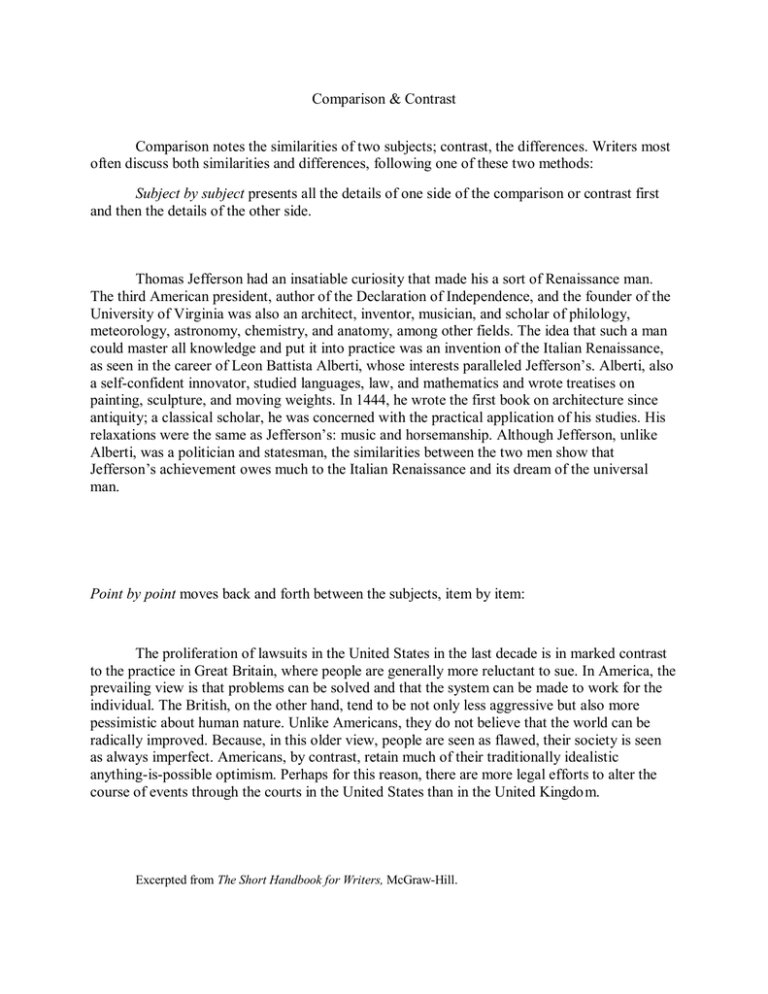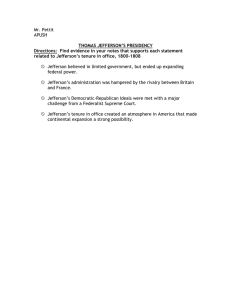Comparison & Contrast
advertisement

Comparison & Contrast Comparison notes the similarities of two subjects; contrast, the differences. Writers most often discuss both similarities and differences, following one of these two methods: Subject by subject presents all the details of one side of the comparison or contrast first and then the details of the other side. Thomas Jefferson had an insatiable curiosity that made his a sort of Renaissance man. The third American president, author of the Declaration of Independence, and the founder of the University of Virginia was also an architect, inventor, musician, and scholar of philology, meteorology, astronomy, chemistry, and anatomy, among other fields. The idea that such a man could master all knowledge and put it into practice was an invention of the Italian Renaissance, as seen in the career of Leon Battista Alberti, whose interests paralleled Jefferson’s. Alberti, also a self-confident innovator, studied languages, law, and mathematics and wrote treatises on painting, sculpture, and moving weights. In 1444, he wrote the first book on architecture since antiquity; a classical scholar, he was concerned with the practical application of his studies. His relaxations were the same as Jefferson’s: music and horsemanship. Although Jefferson, unlike Alberti, was a politician and statesman, the similarities between the two men show that Jefferson’s achievement owes much to the Italian Renaissance and its dream of the universal man. Point by point moves back and forth between the subjects, item by item: The proliferation of lawsuits in the United States in the last decade is in marked contrast to the practice in Great Britain, where people are generally more reluctant to sue. In America, the prevailing view is that problems can be solved and that the system can be made to work for the individual. The British, on the other hand, tend to be not only less aggressive but also more pessimistic about human nature. Unlike Americans, they do not believe that the world can be radically improved. Because, in this older view, people are seen as flawed, their society is seen as always imperfect. Americans, by contrast, retain much of their traditionally idealistic anything-is-possible optimism. Perhaps for this reason, there are more legal efforts to alter the course of events through the courts in the United States than in the United Kingdom. Excerpted from The Short Handbook for Writers, McGraw-Hill.





